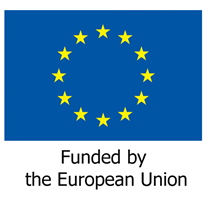There is a growing acknowledgement that international migration trends are becoming increasingly mixed in nature. In these mixed movements, significantly larger numbers of refugees, asylum-seekers, stateless persons and migrants are travelling alongside each other more often, using the same routes and means of transport driven by different motivations and objectives.
While Southern Africa experiences such mixed movements, these movements are increasingly becoming a cause for concern as these irregular movements expose asylum seekers, refugees, and stateless persons to human rights violations, exploitation, abuse and other protection risks. These concerns are shared by SAMM Project.
SAMM Project partners have been concerned with the ever growing link between the increased movement of refugees, asylum-seekers and stateless persons in mixed migratory flows and the changing patterns in international migration and the generally restrictive responses these movements have elicited in many states. The increase in mixed migratory flows in Southern Africa is causing apprehension to countries in the region.
SAMM Project’s partners are intended to promotes comprehensive approaches to address the protection needs of refugees, asylum-seekers and stateless persons in these flows through responses that take into account international protection responsibilities of States, and the right of POC to access differentiated systems for their protection.
SAMM Project in responding to the need for comprehensive and coherent approaches to address the protection needs of POC in mixed migratory movements falling within its competencies and responsibilities.
- Data inclusion: engagement with different Governments in the region to register to include refugees in the national identification and registration systems as a separate category of citizens or other non-nationals. This would help to avoid inconsistent datasets, in a way that maintains refugee protection, mitigate risks of statelessness, and give refugees access to similar services as to that of citizens
- Strengthen the national asylum systems in the region: to continue to work with countries in the to ensure access to asylum in the region despite COVID-19, and to strengthen asylum systems and reception capacity. UNHCR worked closely with partners and civil society to identify needs, employ innovative protection and assistance measures, and support people of concern throughout the pandemic.
- Durable Solution: Through the introduction of proGres v.4 database and UNHCR’s Biometric Identity Management System (BIMS) in a number of operations. Cross-border sharing of data is also essential in terms of identifying durable solutions. In line with the region-wide priority to redouble efforts to promote local integration, UNHCR advocates for persons in need of international protection within mixed movements to be offered effective opportunities to stay in their respective host countries (converting transit countries into destination countries). The strategic use of resettlement and evacuation mechanisms for persons with specific needs also remains of critical importance.
- Protection of VoTs: Survivors of human trafficking may also be refugees, Internally Displaced Persons (IDPs) or stateless people who have fallen victims of traffickers; or have a well-founded fear of persecution and should be protected from forced return to their countries of origin. SAMM Partners have to
- guarantee their right to seek asylum,
- ensure the identification and referral of these persons to UNHCR when needed (including through collaboration between the Mixed Migration agency IOM, UNODC, and UNHCR), and
- seek appropriate durable solutions for victims who qualify as refugees or as stateless persons.
- UNHCR and the Southern African Development Community (SADC) established a five-year joint action plan to support ratification of key instruments by SADC member States, strengthen research, harmonize processes and help develop appropriate policies
- GRF Pledges: During the Global Refugee Forum which took place on 17 and 18 December in Geneva, Switzerland, governments, civil society, local governments and private sector from the southern Africa region expressed an unprecedented commitment to address these challenges with 78 pledges on refugee and displacement responses. Pledges ranged from supporting integration of refugees and former refugees, ensuring registration and access to Identity Cards, providing agricultural land and work permits, enrolling refugees into higher education and strengthening asylum procedures and legal frameworks.
- In South Africa, the Pan African Parliament (PAP) and a group of legal advocates and civil society associations have committed to training government departments and lawyers. In addition, PAP and the African Chapter of International Association of Refugee and Migration Judges pledged to support and improve the asylum system in the country
- Most pledges relate to working with states on strengthening their asylum systems, and with legal practitioners on developing their capacity. Other pledges relate to the integration and protection of refugees by offering access to education, sports, psychosocial support and livelihood opportunities
 English
English
